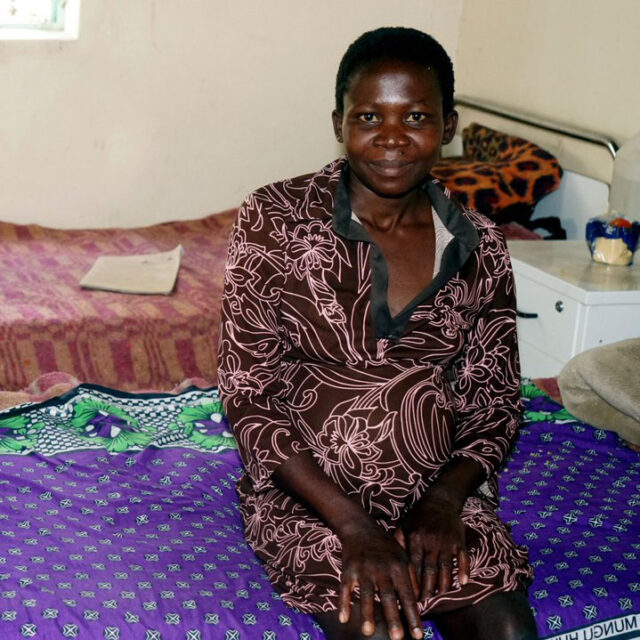Story and photos by Ray Mwareya.
Expensive maternity fees in Zimbabwe are a nightmare for pregnant women. In state or church clinics, where the majority of the poor give birth, charges can rise to $50 USD per month until delivery, according to Chido Gama of the Zimbabwe Health Human Rights Forum, a local lobby network that monitors the rights of disadvantaged expectant mothers.
But organizations like the United Nations Population Fund — with support from foreign assistance provided by countries around the world, including the U.S., U.K., Canada, and more — are working to change that by building and supporting new “maternity waiting homes” in Zimbabwe.
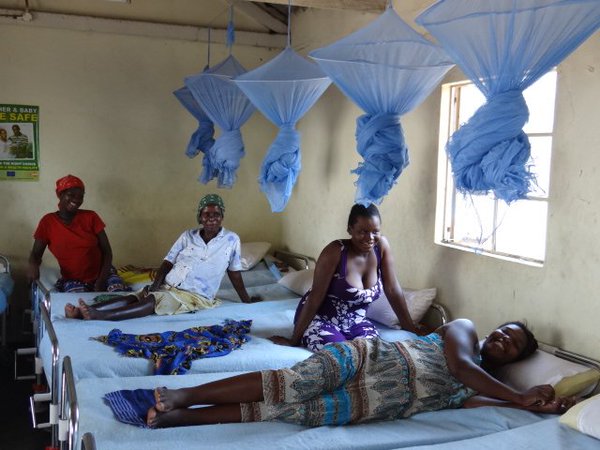
Pregnant women rest in a maternity waiting home in Zimbabwe’s Mashonaland province.
The need for affordable maternity waiting homes in Zimbabwe is huge – but supply and cost are beyond the means of many women. The country has seen a worrying amount of incidences of mothers suffering from complications like obstetric fistula or dying in childbirth, as well as babies dying from malnutrition. According to the UN Population Fund’s Country Representative, Cheikh Tidiane Cisse, Zimbabwe’s mortality rate is 614 per 100,000 live births.
The UN Population Fund wants to stop this: “We are implementing work to build cheap maternity waiting homes for Zimbabwe’s poorest women,” says Cheikh Tidiane. “These homes give women a safe place before labor to ensure access to skilled birth attendants.”
He praises the multilateral donor funding because it prevents critical delays that cause maternity deaths. In these maternity homes, pregnant women receive antenatal care, nutrition support, and fetus screening services.
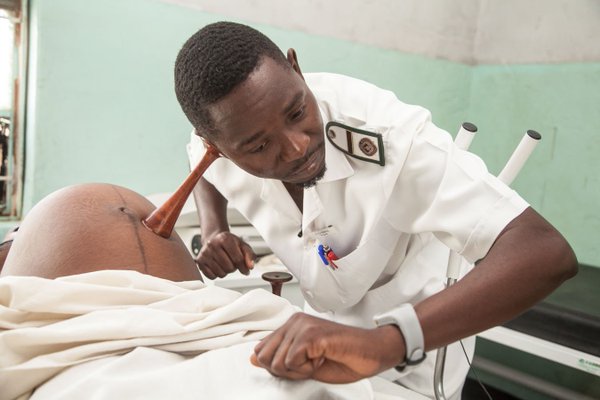
A nurse examines a pregnant woman in a maternity home.
“Our program seeks to increase the number of pregnant women visiting a proper health institution by 80% by 2020. Young women shouldn’t give birth in villages under the care of untrained midwives.”
The program has already installed three maternity waiting homes in Zimbabwe’s Mashonaland province, home to the country’s capital city, Harare.
The program is having an impact, especially among young, new mothers.
“I feel safe in this maternity waiting home,” says Roselyn Chitema, 20. “It is my first time to fall pregnant. I could not afford the $80 that a state clinic charged to manage my delivery, so I came to this UN facility.”
She had to travel 300 kilometers from her village to check herself into the UN facility.
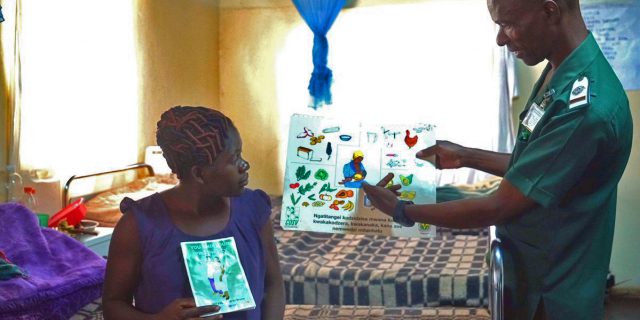
An employee at the maternity home discusses infant care with a pregnant woman.
“Some rural clinics in Zimbabwe are notorious for turning away first-time pregnant women,” adds Chido Gama. “If you’re pregnant for the first time, rural clinics can wave you away and tell you to approach city hospitals because they say they don’t want to take chances with complicated first-time births. But in city clinics, you land into even more expensive hospitals.”
She adds: “Cost and lack of medical facilities is causing some rural young women to give birth at home under the risky supervision of untrained midwives — usually 60-year-old grandmothers.”
Roselyn feels well-cared for at the UN-supported maternity waiting home. “We feel safe giving birth in these safe-house maternity waiting homes,” she says. “This feels so secure. I need peace during childbirth.”
Her friend, Neria*, who is 26 and also pregnant, agrees. Neria says this is her second attempt at child birth. Her first pregnancy was when she was 17. But the baby was stillborn and Neria developed obstetric fistula, a debilitating condition that rendered her incontinent.
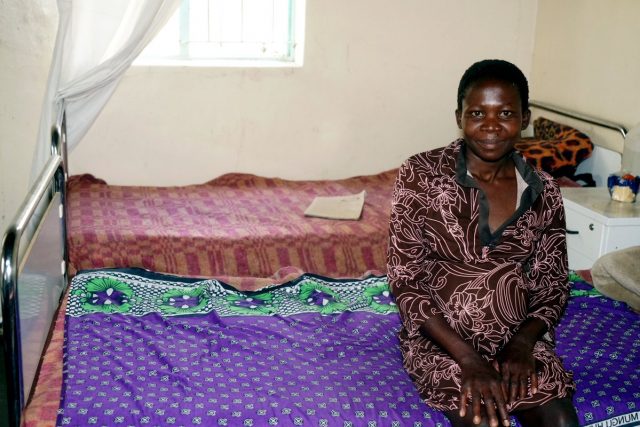
An expectant mother sits at the maternity waiting home in Mashonaland province.
Neria is happy with the services at the maternity home. “I look forward to a healthy baby delivery,” she says. She is also receiving surgical treatment to reverse the effects of her obstetric fistula.
All mothers should be able to give birth in safe, clean environments — and organizations supported by generous development assistance from the U.S, U.K., and countries around the world can help make that happen.
